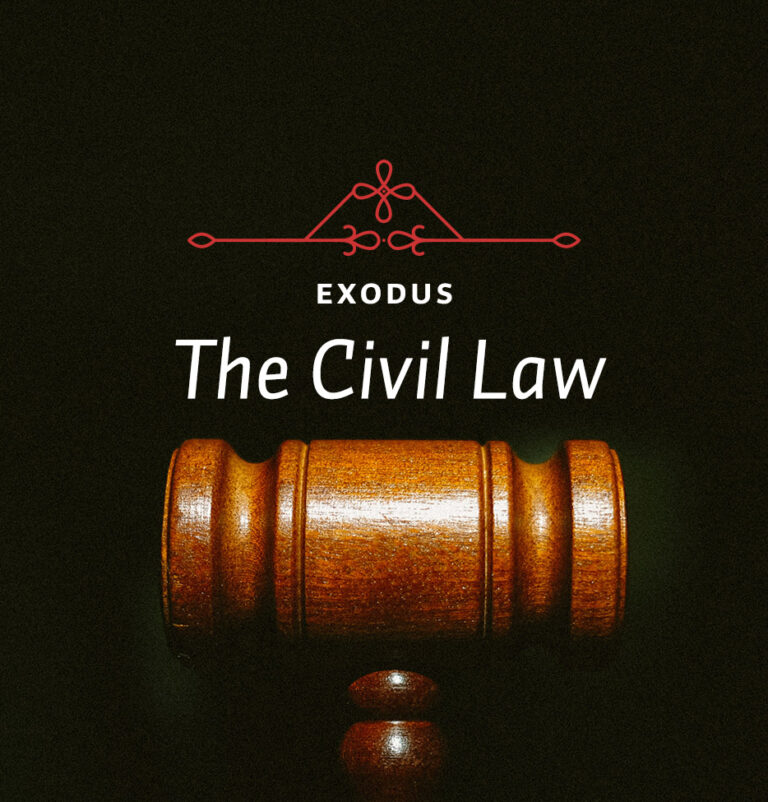
Monday: The Civil Law of Israel
After the giving of the Ten Commandments, we have the civil law, seen in chapters 21-23. This has to do with the new nation of Israel, and how it was to be administered, and how crimes were to be punished. We call this the civil law, but the book of Exodus actually calls this and the section on the Ten Commandments the Book of the Covenant. These chapters then conclude with the confirmation of the covenant.



